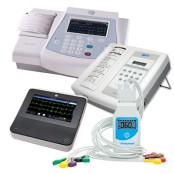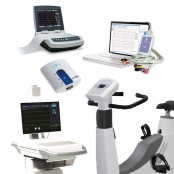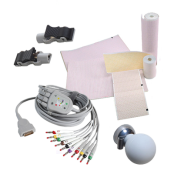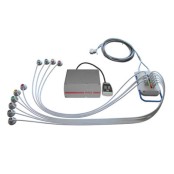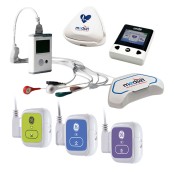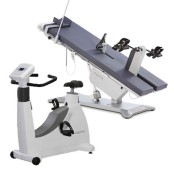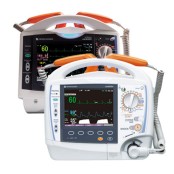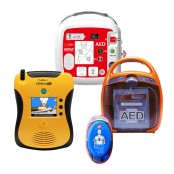
Electrocardiogram
Our portfolio of ECG devices includes a wide selection of first-class products from various manufacturers for optimal diagnostics of your patients' heart health. We would be happy to advise you individually to find the best solution for your needs - regardless of whether you are looking for a compact, portable device for your practice or home visit, or larger, multifunctional devices for the ward of your clinic or rehabilitation facility.
Of course, we also advise you on connection options and transfer options for ECG data to your practice IT or your KISS.
The right equipment and connection for your ECG device
We also offer you the right accessories for ECG monitoring. With us you will find cables, electrodes, suction systems, sprays and much more to make heart monitoring as precise and comfortable as possible.Of course, we also advise you on connection options and transfer options for ECG data to your practice IT or your KISS.
What is an ECG?
An EKG (electrocardiogram) is a medical diagnostic method used to record the electrical activity of the heart. This procedure is used to assess heart functions, detect irregularities in the heart rhythm and diagnose various heart diseases.How does an EKG work?
Electrical activity of the heart: The heart is a muscle that contracts to pump blood throughout the body. With each heartbeat, this muscle produces electrical impulses that propagate through the heart tissue and coordinate contractions. The ECG measures these electrical signals.
Electrodes: To record the electrical signals of the heart contracting, electrodes are placed on the arms, legs and chest. These electrodes are connected to an ECG machine.
Leads: The electrodes transmit the heart's electrical signals to the ECG machine.
Result: The ECG machine records the heart's electrical impulses, which are displayed as waveforms on an ECG paper or screen. The most important ECG waves are the P wave, the QRS complex and the T wave. Variations in these waveforms can indicate heart problems.
Interpretation: The doctor analyzes the recorded ECG waves to assess the heart rhythm, heart rate and possible abnormalities. This information can be used to diagnose heart diseases such as heart attacks, arrhythmias, heart failure and other heart diseases.
An ECG is an important diagnostic method that is used both in emergency medicine and in routine examinations. This allows doctors to evaluate heart health and make the best treatment decisions.
Different ECG types
The resting ECG: The resting ECG is the basic form of heart monitoring and is perfect for regular health checks. In our product selection you will find resting ECG devices from leading manufacturers that record precise data during rest periods.Stress ECG: In this procedure, the patient is subjected to targeted physical stress in order to measure and analyze the increase in blood pressure and heart rate during this stress.
Long-term ECG: Continuous monitoring over 24 hours is possible with long-term ECG devices. These devices are comfortable and inconspicuous to wear and record heart activity in everyday life.
Our dedicated technical service
Our technical service is here to ensure you always receive the best possible support. We offer:Required maintenance: Regular maintenance is crucial to the longevity and accuracy of your equipment.
Necessary repairs: If your equipment ever develops a problem, we are available to carry out repairs so you can be confident that your equipment is always ready for use.
Invest in your patients' heart health and discover the possibilities our ECG devices and services offer. Our experts will be happy to help you select and maintain your equipment so that you always achieve the best results.

